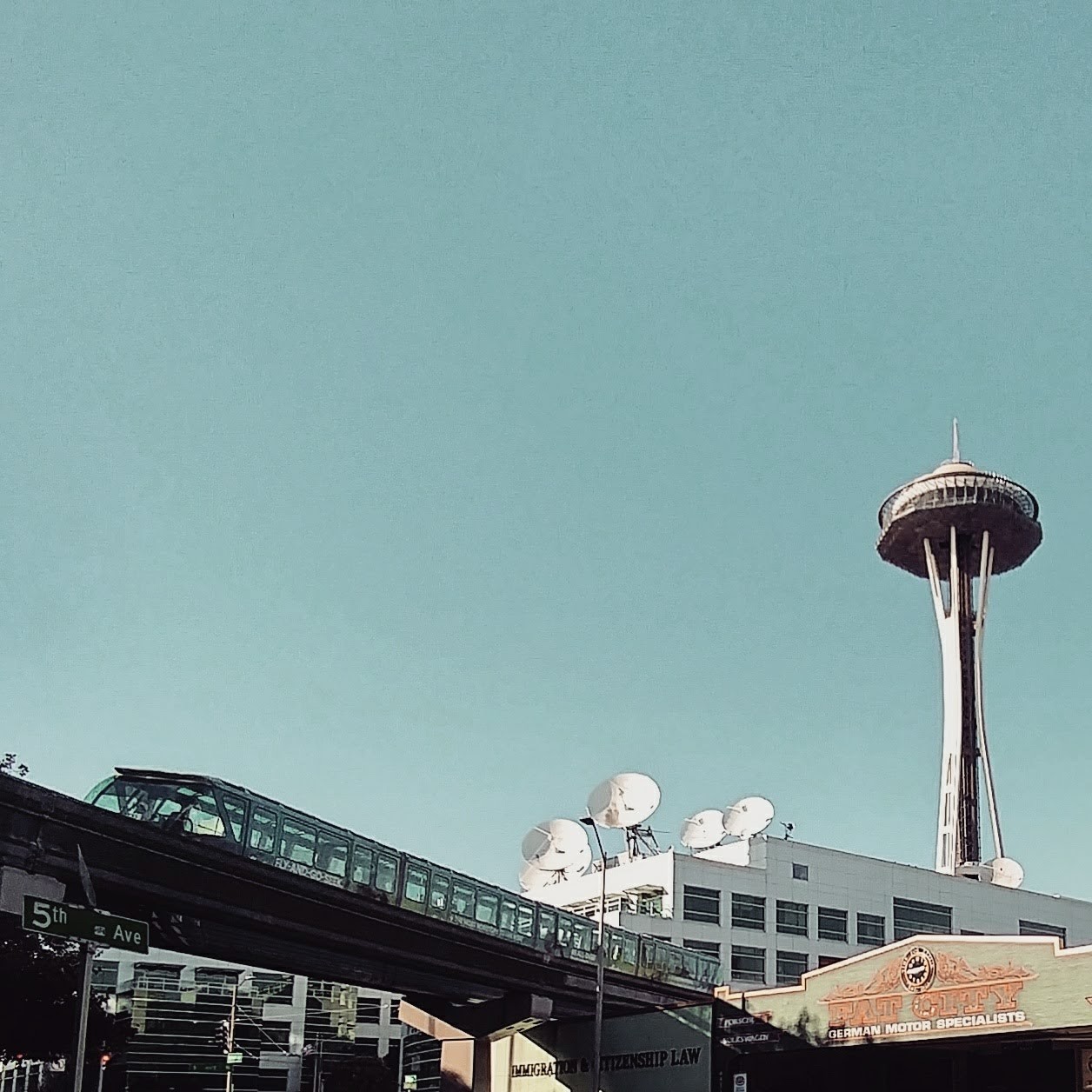The Puget Sound Business Journal is looking at the bright side of things. Yes, Seattle's tech sector shrank not too long after the pandemic ended (or, more precisely, was normalized—it is still with us, still killing lots of people), but the space industry, which has its roots in Boeing's former domination of the region's economy, is expanding thanks to the investments by two billionaires, Elon Musk and Jeff Bezos. The former, who runs SpaceX, "doubled [his] Puget Sound-area workforce to roughly 2,000 employees in the last year." The latter, Bezos's Blue Origin, "saw its Seattle-area workforce climb by more than 300 employees over the past year." Bezos also owns Project Kuiper, a subsidiary of Amazon that plans to compete directly with Musk's world-famous Starlink by launching a total of "3,236 low-Earth orbit internet satellites by mid-2029." Starlink presently has 6,078 satellites in space.
And so this is what has become of our stars: commercial projects that will eventually obscure Earth-based scientific observations of real stars, the galaxies they form, and the universe they wander through from "remote eons to infinitely remote futures."
Seattle's 1962 Century 21 Exposition, which gave the city its only iconic building, the Space Needle, promoted the region beyond our atmosphere in terms that owed their inspiration to a cultural movement we still confusedly call the Enlightenment. Recall JFK's 1962 speech at Rice University. Also recall its most memorable moment:
Many years ago the great British explorer George Mallory, who was to die on Mount Everest, was asked why did he want to climb it. He said, "Because it is there."
Well, space is there, and we're going to climb it, and the moon and the planets are there, and new hopes for knowledge and peace are there. And, therefore, as we set sail we ask God's blessing on the most hazardous and dangerous and greatest adventure on which man has ever embarked.
This enlightened feeling of wonder, which was with us as late as 1998, as the sample at the opening of Gang Starr's track "Above the Clouds" attests, is gone in our post-neoliberal age of the billionaires. Space is now about "market potential." In fact, science as a globalizing cultural project has never been about the wonder expressed by certain religions and philosophies in the scattered history before the 17th century. It began (and will end) with investment opportunities whose returns required not only the uniformity of time but its domination over space.
The period in which Kennedy delivered his famous space speech, and during which the Space Needle was built, the Cold War, obscured the economic foundation of modernized technological and scientific development. It presented instead a noble (or humanistic) race between the US and the USSR. One or the other was to become, as the philosopher Susan Buck-Morss put it in her 2000 book Dreamworld and Catastrophe, "the legitimate heir" of the Enlightenment's defining political moment, the French Revolution. Which would be the best measure of "man"? The measure of progress, a social concept that obsessed the Victorians? The Eagle or the Bear?
In short, would the dream of total human emancipation be achieved by capitalism (in its state form)? Or Socialism (also in its state form—the world has yet to experiment with anarcho-socialism)? The latter would lose this legitimacy race because it was more confused about the root and function of the enlightenment than the former. The same confusion is also found in Ellen Meiksins Wood's 2002 book The Origin of Capitalism. She incorrectly believed that "the Enlightenment project [was] distinctly non-capitalist" and that many of its features "were [instead] rooted in non-capitalist social property relations." And so, for Wood, as with state socialism, rationalization (also called modernization), existed before every society was unified by Newtonian time, the time of work, the time of paying bills, the time of vacations, the time education, the time of retirement, the time of reading wills, the time now organized by clocks synchronized by satellites to prevent the minute leakages described by Einsteinian relativity.
It is no accident that Sir Issac Newton was also Master of the Royal Mint, the master of British money, a fact that cost a number of counterfeiters their lives. Nor is it an accident that the man who gave us the most powerful theory of time and space, special relativity, spent a good part of his life as a patent clerk. Nor must we find it strange or even absurd that the most rewarding chapter of James Joyce's Ulysses, "Ithaca," moves between the cosmic and the commercial with great ease. The two cannot be separated. Measuring economic activity and the distance of stars are directly related. The accounting intensity (or mania) of the former, made the latter inevitable. How much did you spend today? How bright is the moon tonight? How long does it take for a ship to cross the ocean; how long does it take for light to arrive from that galaxy? What are the assets in your mother's will? What is the composition of water? This is the stuff of "Ithaca."
All that space will ever be is all that the present mayor of Everett, Cassie Franklin, could say about it: “I am thrilled to welcome Amazon’s new Project Kuiper facility to Everett. This investment not only strengthens our region’s reputation as a hub for [space] innovation but also creates valuable job opportunities for our residents.”



















